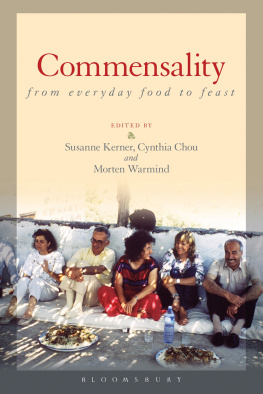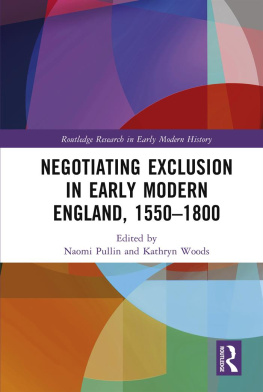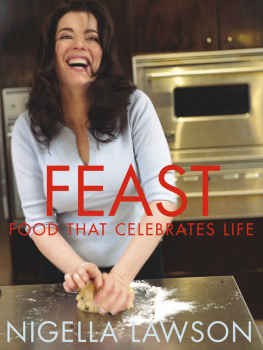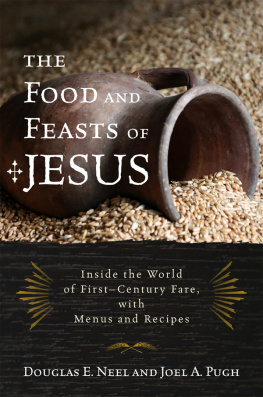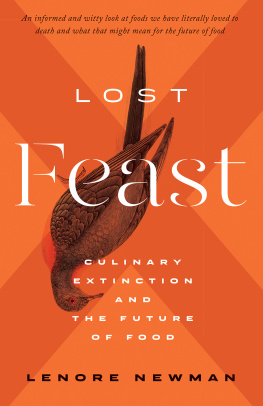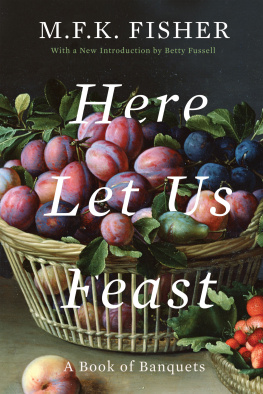Commensality
Commensality
From Everyday Food to Feast
Edited by
Susanne Kerner, Cynthia Chou, and Morten Warmind
Bloomsbury Academic
An imprint of Bloomsbury Publishing Plc
Contents
Boris Andersen (M.A. in Media Sociology and Literature, University of Copenhagen) is a Ph.D. fellow at Aalborg University, associated with the research group Foodscapes, Innovation, and Network. His present research is focused on young peoples food habits, commensality, and cooking skills. Other research interests include health in meal communities, youth and foodblogs, as well as the relationship between young peoples interest in cooking and food manners during education in home economics and the environment.
Stuart Campbell is professor of Near Eastern Archaeology at the University of Manchester. He has directed and co-directed the Domuztepe Project since 1995, and has worked previously on prehistoric sites in Iraq and at the Bronze Age site of Jerablus Tahtani in Syria. His research has involved a wide range of approaches to understanding prehistoric societies, including symbolism and use of ceramics, funerary practices and the ways in which the past was remembered in prehistoric societies. He also has methodological interests in chronologies, site formation processes and archaeological practice.
Cynthia Chou is Associate Professor of Southeast Asian Studies at the Department of Cross-cultural and Regional Studies at the University of Copenhagen. Her research focuses on centerperiphery relations, indigenous communities, and the relationship between movement and identity constructions in Island Southeast Asia. Her publications include Agriculture and the End of Farming in Singapore, in Nature Contained: Environmental Histories of Singapore , ed. Timothy P. Barnard (Singapore: NUS Press, 2014) and (London and New York: Routledge, 2010).
Maria Bianca DAnna studied Near Eastern prehistory at the Sapienza University (Rome) and is now working on her Ph.D. dissertation on the Arslantepe period VI A pottery at Eberhard Karls University (Tbingen). She has worked at Arslantepe since 1996 and took part in excavations and surveys in Turkey, Syria, and Azerbaijan. One of her research interests is the role of food politics and commensality in early complex societies.
Alexandra Fletcher is the Raymond and Beverly Sackler curator of the Ancient Near East at the British Museum, with special responsibilities for the prehistoric collections within the department of the Middle East. She has been part of the Domuztepe project team from 1996 and managed the excavations program of ceramic research. Her research deals with aspects of identity, social development and the study of social information contained within material culture, particularly objects associated with food and drink.
Paul Freedman is a Professor of History at Yale University in the U.S.A. His fields are medieval history and the history of food. He has written extensively on Catalan society in the Middle Ages. He is also the author of a book that considers the demand for spices. Freedman edited , a volume of essays that consider food from prehistory to the present. It has been translated into ten languages.
Carolin Jauss studied archaeology and languages of ancient Western Asia, Middle Eastern Studies and Anthropology at the Albert-Ludwigs-Universitt Freiburg im Breisgau and the University of Arizona, Tucson. After a stay at UNESCOs headquarters in Paris, she worked as assistant at the Free University Berlin. She is a member of the project Commensality and Shared Space in the Context of Early State and Urban Development in Mesopotamia and Southwest Iran that is part of the Excellence Cluster Topoi at the Free University Berlin.
Susanne Kerner (M.A. and Dr. Phil, Free University Berlin, Germany) is Associate Professor of Near Eastern Archaeology at the Department of Cross-cultural and Regional Studies. She has been directing the German Institute for Archaeology of the Holy Land in Amman as well as leading several excavations in Jordan. Her research interests include the development of social structure and hierarchy, food and its social relations, and gender archaeology. She has written on specialization and social dimensions of pottery, and her latest edited publication is Climate and Ancient Society (2014).
Yvonne le Grand , while doing research for a project on the politics of cooking, became interested in the political economy of the global food system. Currently she is pursuing a Ph.D. in social and cultural anthropology on the conflicting beliefs and ideologies in the genetically modified food debate in Portugal at the Institute of Social Sciences of the University of Lisbon.
Astrid Mller-Olsen holds a Masters degree in Comparative Literature from the University of Copenhagen. She studied Chinese as her minor, including half a year at Beijing University. Her publications include articles on Ah Chengs material Daoism and Lu Xuns use of cannibalism as a literary theme. On her blog (http://www.writingchina.wordpress.com) she writes about food, drink, and the body in Chinese literature.
Cornelia A. Nell , after her undergraduate degree at the National University of Ireland NUI Maynooth in Anthropology and English, lived in Bolivia for some time. She returned to Europe in 2007 in order to take up a Ph.D. in Social Anthropology with Amerindian Studies at the University of St. Andrews in Scotland. Her work is based on fieldwork in the Bolivian Andes in 2008/9.
Hanne Nymann is a historian, currently working as project manager as well as historical researcher for the Qatar Islamic Archaeology and Heritage Project (University of Copenhagen). Her academic interest lies within the topics of historical food and consumption studies, working from both textual and archaeological sources, with a particular interest in the culinary cultures of the pre-modern period of the Persian Gulf.
Jordan D. Rosenblum is Belzer Associate Professor of Classical Judaism at the University of Wisconsin-Madison. He received his Ph.D. in Religious Studies from Brown University (2008). He is the author of Food and Identity in Early Rabbinic Judaism (Cambridge: Cambridge University Press, 2010).
Ingvild Slid Gilhus is Professor of Religion at the University of Bergen, Norway. She works in the areas of religion in late antiquity and new religious movements. Main publications include Laughing Gods, Weeping Virgins: Laughter in the History of Religions (1997) and (2006). She is the book review editor of Numen and an editorial board member of Temenos.
Tan Chee-Beng , who is from Malaysia, has taught at several universities and is currently Distinguished Professor at the Department of Anthropology, Sun Yat-sen University. His major areas of interest have been cultural change, ethnicity, and ethnic relations, Chinese overseas, religion, anthropology of food, indigenous peoples, and development, and his research areas include Southeast Asia and China. His recent publications include Chinese Overseas: Comparative Cultural Issues (2004), as editor, Chinese Transnational Networks (2007), Chinese Food and Foodways in Southeast Asia and Beyond (2011), and, as co-editor, Food and Foodways in Asia (2007), The World of Soy (2008).
Katheryn C. Twiss is Associate Professor of Anthropology at Stony Brook University in New York. She co-leads the faunal analysis team at the Neolithic site of atalhyk in Turkey. Her research interests include ancient food production, preparation, and consumption; human-animal relationships; and the origins of village life.

